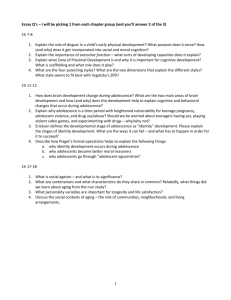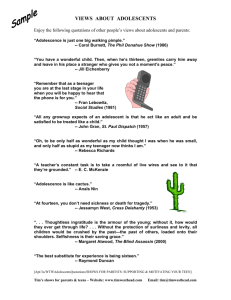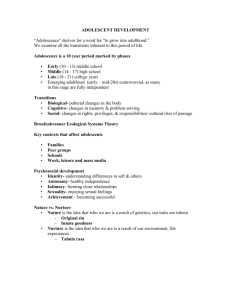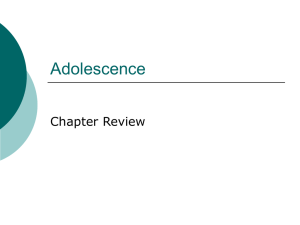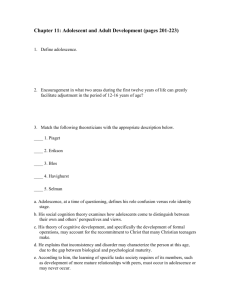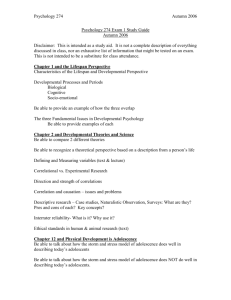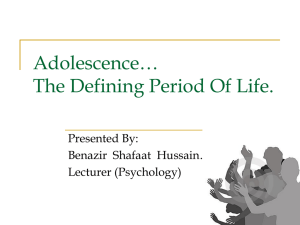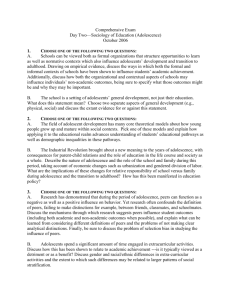Three myths of adolescence
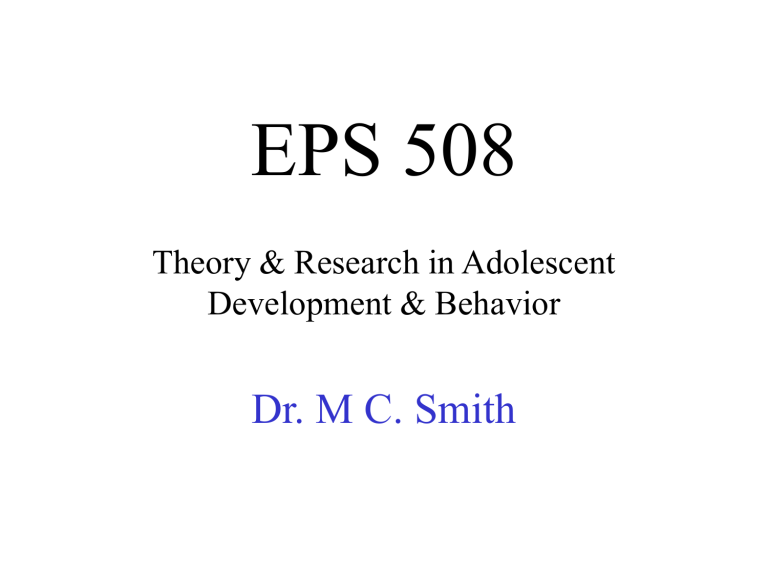
EPS 508
Theory & Research in Adolescent
Development & Behavior
Dr. M C. Smith
Course syllabus and requirements
• Blackboard
– http://webcourses.niu.edu
• Log-on name and password
• 753-8100 (HELP desk)
• http://www.niu.edu/directory.html
Course requirements
• Textbooks and readings
• Web site search and evaluation paper
• Case study paper
• Small group discussions
• Parenting book review paper
• Topical presentation (
PowerPoint )
• Attendance and participation
• APA ms. style for all papers
What are some defining characteristics of adolescents?
How do you think adolescents today differ from adolescents of 25 years ago? 50 years ago?
100 years ago?
What are some of the major problems and issues that adolescents face today?
5 “myths” about adolescents
• MYTH:
• Storm and stress
• Puberty is negative
• Extreme emotionality
• Generation gap
• Suicide risk
• FACT:
• Range of experiences
• Unremarkable
• Emotions stable
• Good relationships
• Greater number, but rate is decreased
Adolescence
• Adolescere
:
– To grow up, or into maturity.
– Many definitions of adolescence: ages 10 – 25 ?
• Puberty
:
– Pubescere: “ to grow hairy ”
• Culturally determined
:
– An American invention
• Marker events for adolescence
?
A brief history of adolescence
• Ancient perspectives
– Plato: development occurs in stages .
– Aristotle: youth “particpate” in their own development .
• Modern perspectives
– JJ Rousseau: adolescent problems stem from social pressures to become adults before they are ready.
History...
• Modern perspectives
– GS Hall: adolescence is stormy, stressful .
– S Freud: adolescence coincides with “genital” period in development .
– M Meade: society largely determined the nature of adolescence .
– E Erikson: identity formation occurs in adolescence .
History...
• Contemporary perspectives
– RM Lerner: understanding the contexts of adolescents lives is critical to understanding their development .
– A. Bandura: adolescent development shaped through processes of modeling, imitation, and reinforcement .
– J. Jensen-Arnett: emerging adulthood.
What is “development”?
Significant and relatively permanent change within the individual brought about by maturation, learning, experience , or various environmental conditions--usually occurring over some significant period of time (e.g., months or years).
Critical transition of adolescence
D. Hamburg (1986)
• Period of adolescence is lengthening
• Disjunction between biological and social development
• Confusion over adult roles
• Few family and social support networks
• Adolescent access to harmful substances and activities
Historical perspectives on adolescence and education
( B. Finkelstein, 2001)
• The “invention” of adolescence
• The schooling of American youth
• The experience of adolescence
• Diversity among adolescents
